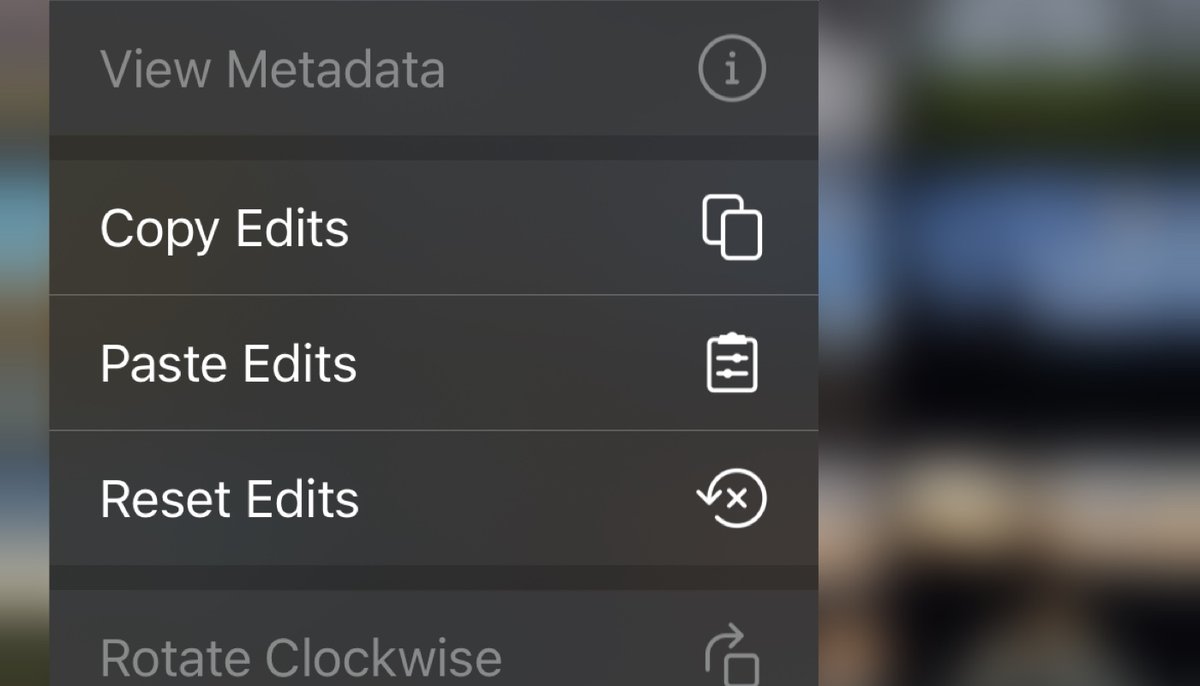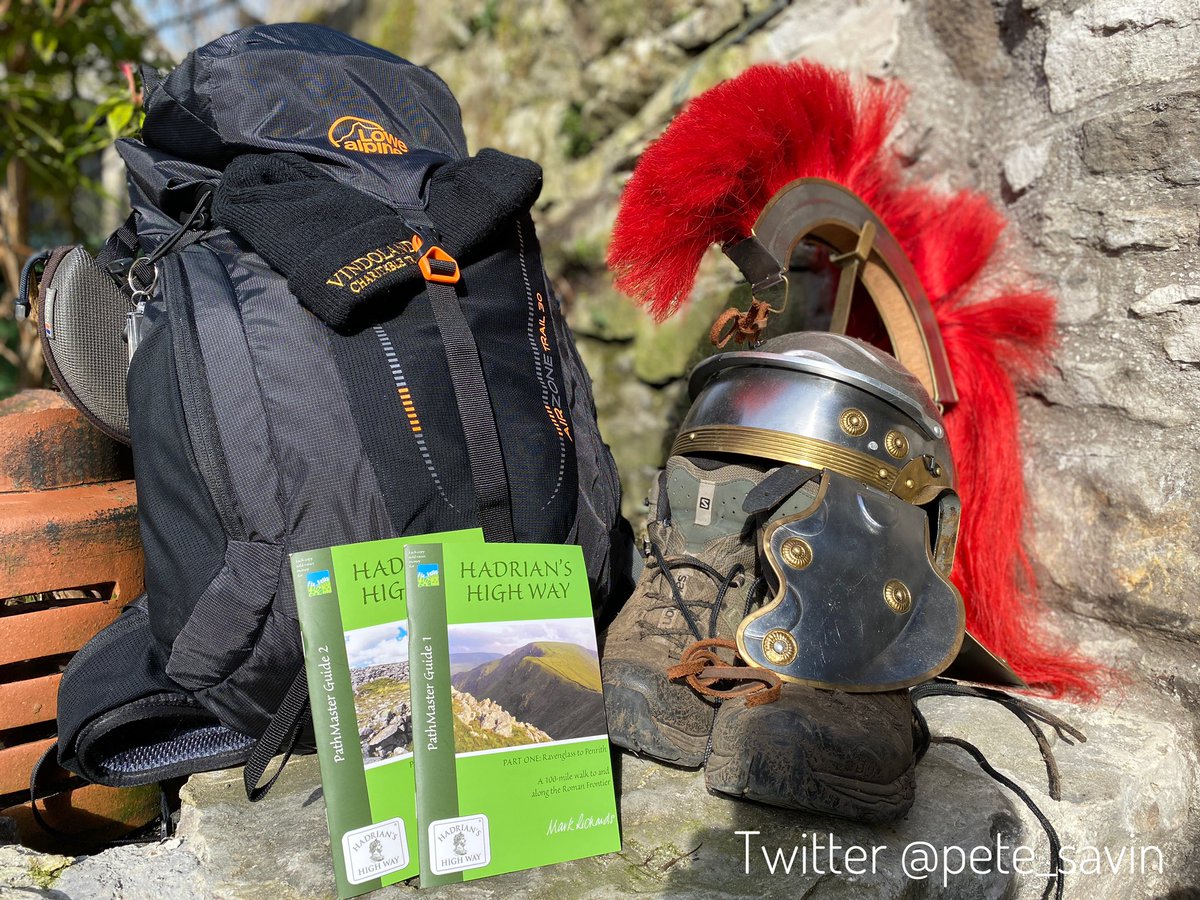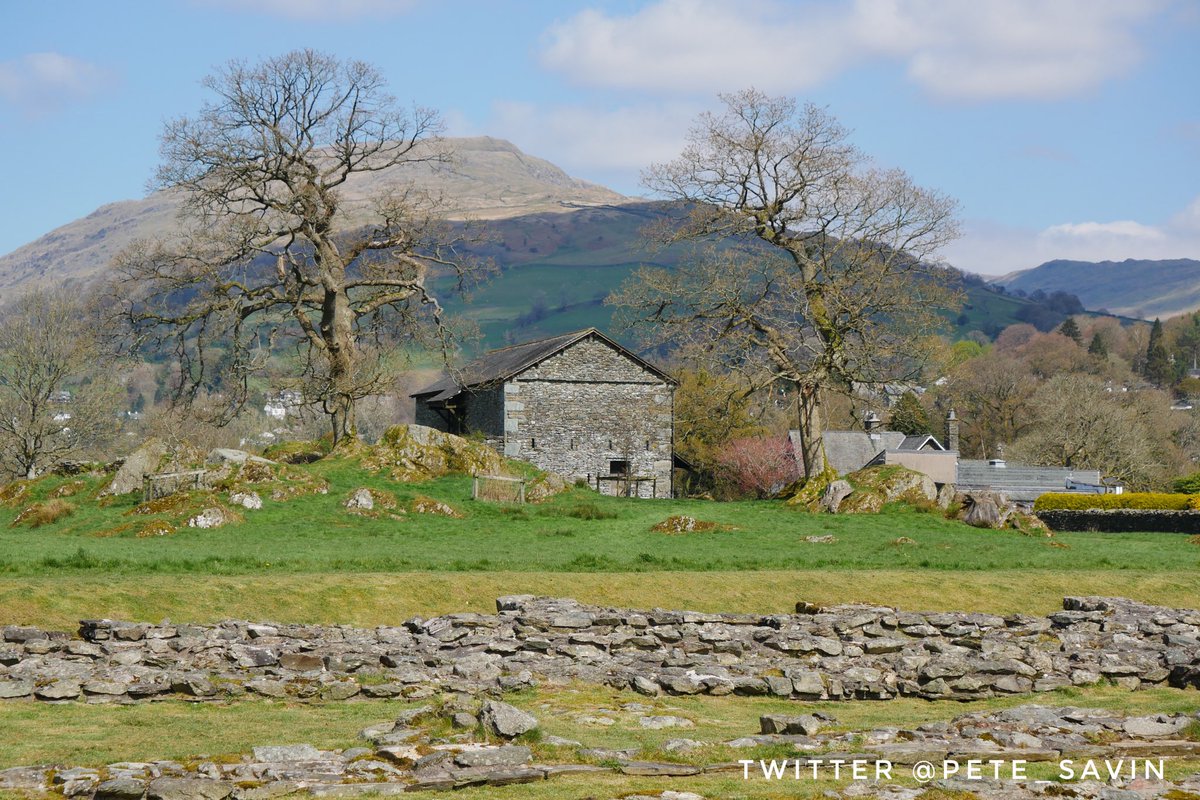Basically i'm at the point in my isolation and thinking that I'll take whatever just so this bullshit can end.
Been reading up a lot about these jabs, esp as I know they are going to be a condition of a return to normality
Was on a zoom call last evening with a testing company that had some fascinating evidence on protection etc.
I have more reading to do.
Basically i'm at the point in my isolation and thinking that I'll take whatever just so this bullshit can end.
All i have is what goes round and round in my head.
There's no one else to help balance it.
And also to study what happens. Because i have that kind of mind.
But we live with risk every day.
I risk my life climbing walls with only a harness around my waist to catch me as i lean back and fall off
And rational risk assessment is at the heart of everything going wrong these last 12 months
I have a lot of thinking to do.
This is on my mind a lot.
It's about rational risk assessment. Weighing up the pros and cons, not just of the jab, and not just "what happens if i do" but "what happens if i dont"
It's so much more to consider.
But 2 Roche anti-N assays have been "negative" - 0.05, and 0.08 quantitative
So What is the actual answer? Do i just have t cells that mop it up and antibodies aren't necessary?
I also have an autoimmune thyroid disease that has only once tested positive for antibodies - otherwise they're almost always under the threshold. Present, but low
According to the testing company last evening and the expert they had on, if you've already encountered the virus and you're primed, the jab acts as a booster.
It would be a more compelling argument not to be masked if i have had the jab and can prove it.
So yeah.
And who did it harm? Me. It did not change the situtation, which was that i *had* to pass that exam before i could obtain the citizenship i was entitled to for nearly 15 years.
We all have our circumstances and none of them are the same. No one else walks in my shoes.
There should be no coercion and no punishment to any of this.
That's been the biggest lesson i've learned through all of this --
THEY WILL DO IT ANYWAY
look at masks. no evidence of their effectiveness, mandated anyway and repeatedly the thumbscrews are tightened, shops harass us, etc etc.
More from Tech
On Wednesday, The New York Times published a blockbuster report on the failures of Facebook’s management team during the past three years. It's.... not flattering, to say the least. Here are six follow-up questions that merit more investigation. 1/
1) During the past year, most of the anger at Facebook has been directed at Mark Zuckerberg. The question now is whether Sheryl Sandberg, the executive charged with solving Facebook’s hardest problems, has caused a few too many of her own. 2/ https://t.co/DTsc3g0hQf
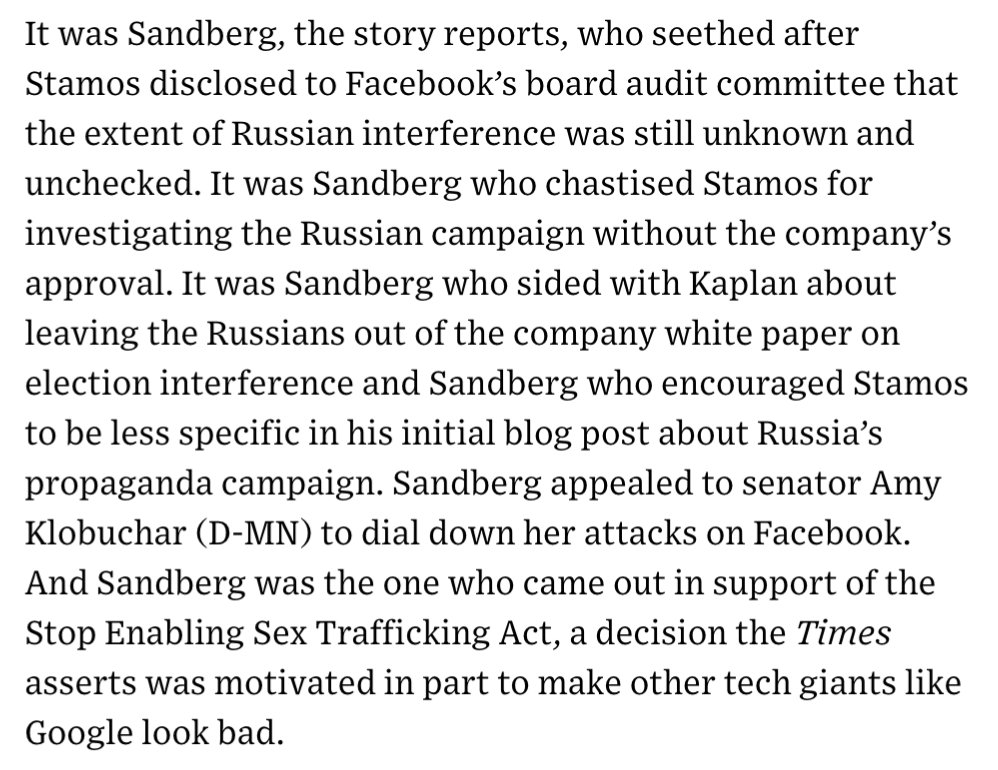
2) One of the juiciest sentences in @nytimes’ piece involves a research group called Definers Public Affairs, which Facebook hired to look into the funding of the company’s opposition. What other tech company was paying Definers to smear Apple? 3/ https://t.co/DTsc3g0hQf
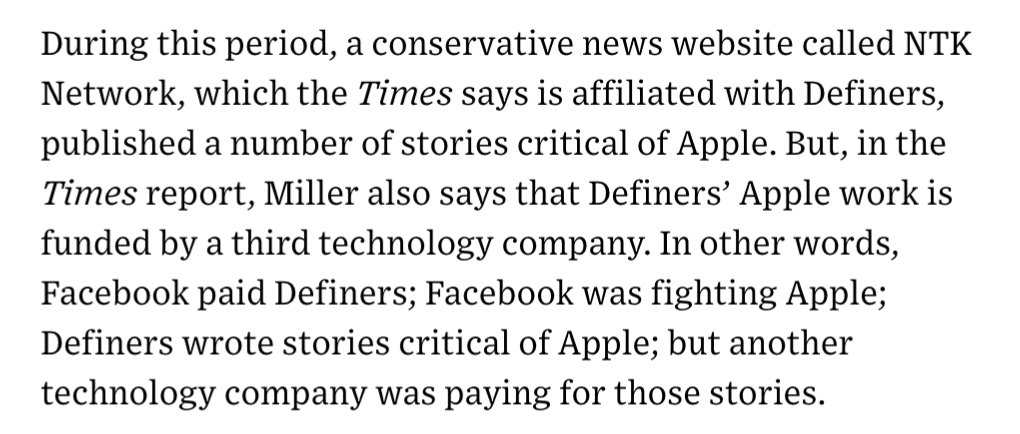
3) The leadership of the Democratic Party has, generally, supported Facebook over the years. But as public opinion turns against the company, prominent Democrats have started to turn, too. What will that relationship look like now? 4/
4) According to the @nytimes, Facebook worked to paint its critics as anti-Semitic, while simultaneously working to spread the idea that George Soros was supporting its critics—a classic tactic of anti-Semitic conspiracy theorists. What exactly were they trying to do there? 5/
1) During the past year, most of the anger at Facebook has been directed at Mark Zuckerberg. The question now is whether Sheryl Sandberg, the executive charged with solving Facebook’s hardest problems, has caused a few too many of her own. 2/ https://t.co/DTsc3g0hQf

2) One of the juiciest sentences in @nytimes’ piece involves a research group called Definers Public Affairs, which Facebook hired to look into the funding of the company’s opposition. What other tech company was paying Definers to smear Apple? 3/ https://t.co/DTsc3g0hQf

3) The leadership of the Democratic Party has, generally, supported Facebook over the years. But as public opinion turns against the company, prominent Democrats have started to turn, too. What will that relationship look like now? 4/
4) According to the @nytimes, Facebook worked to paint its critics as anti-Semitic, while simultaneously working to spread the idea that George Soros was supporting its critics—a classic tactic of anti-Semitic conspiracy theorists. What exactly were they trying to do there? 5/
You May Also Like
I just finished Eric Adler's The Battle of the Classics, and wanted to say something about Joel Christiansen's review linked below. I am not sure what motivates the review (I speculate a bit below), but it gives a very misleading impression of the book. 1/x
The meat of the criticism is that the history Adler gives is insufficiently critical. Adler describes a few figures who had a great influence on how the modern US university was formed. It's certainly critical: it focuses on the social Darwinism of these figures. 2/x
Other insinuations and suggestions in the review seem wildly off the mark, distorted, or inappropriate-- for example, that the book is clickbaity (it is scholarly) or conservative (hardly) or connected to the events at the Capitol (give me a break). 3/x
The core question: in what sense is classics inherently racist? Classics is old. On Adler's account, it begins in ancient Rome and is revived in the Renaissance. Slavery (Christiansen's primary concern) is also very old. Let's say classics is an education for slaveowners. 4/x
It's worth remembering that literacy itself is elite throughout most of this history. Literacy is, then, also the education of slaveowners. We can honor oral and musical traditions without denying that literacy is, generally, good. 5/x
As someone\u2019s who\u2019s read the book, this review strikes me as tremendously unfair. It mostly faults Adler for not writing the book the reviewer wishes he had! https://t.co/pqpt5Ziivj
— Teresa M. Bejan (@tmbejan) January 12, 2021
The meat of the criticism is that the history Adler gives is insufficiently critical. Adler describes a few figures who had a great influence on how the modern US university was formed. It's certainly critical: it focuses on the social Darwinism of these figures. 2/x
Other insinuations and suggestions in the review seem wildly off the mark, distorted, or inappropriate-- for example, that the book is clickbaity (it is scholarly) or conservative (hardly) or connected to the events at the Capitol (give me a break). 3/x
The core question: in what sense is classics inherently racist? Classics is old. On Adler's account, it begins in ancient Rome and is revived in the Renaissance. Slavery (Christiansen's primary concern) is also very old. Let's say classics is an education for slaveowners. 4/x
It's worth remembering that literacy itself is elite throughout most of this history. Literacy is, then, also the education of slaveowners. We can honor oral and musical traditions without denying that literacy is, generally, good. 5/x






